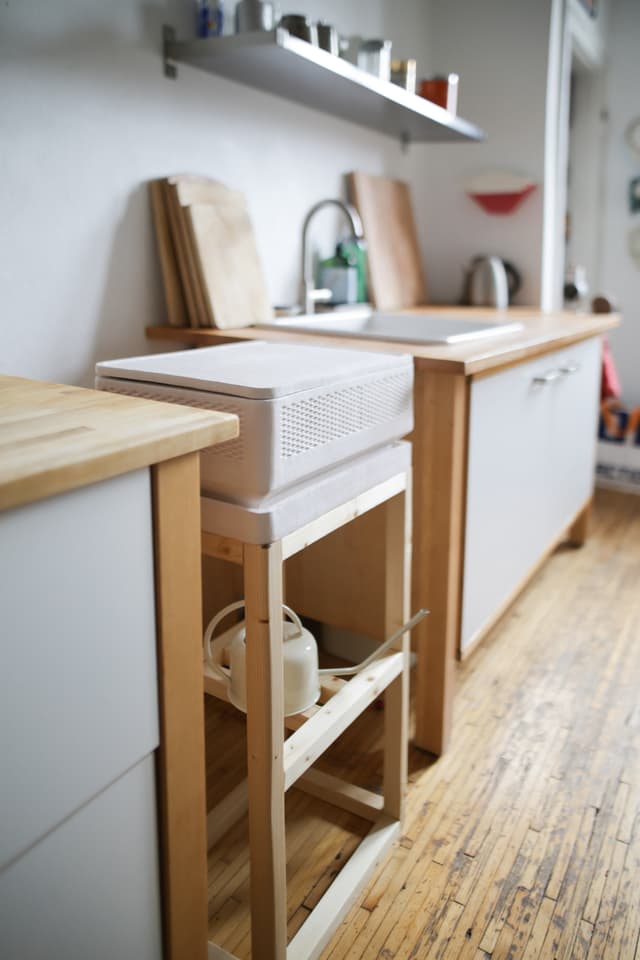German industrial designer Lea Lorenz has created a new clay cooler based on the age-old principle of evaporative cooling. Dubbed TONY, this simple design offers a modern reinterpretation of the traditional clay jug cooler, providing an eco-friendly solution to keep food fresh without the need for electricity.
Lorenz’s motivation for developing TONY was rooted in addressing the pervasive issue of food waste resulting from inadequate storage practices.
Many food items, such as fruits, vegetables and baked goods do not necessarily require refrigeration but often suffer from premature spoilage due to improper storage. TONY is designed to fill this gap by providing an effective, sustainable method for keeping these items fresh without the need for electricity or conventional refrigeration.
The core design consists of individual clay coolers, available in three stackable sizes, each equipped with a water tank, a food container, and a lid. This modular design allows for independent functionality, while ensuring that each unit receives an adequate water supply.

Lea Lorenz
The use of porous raku-clay, which is locally sourced from the Westerwald region in Germany, is central to the design and cooling process. This clay material absorbs water from the tank and facilitates evaporation on the walls of the food container, creating an optimal storage environment with temperatures ranging from 13 °C to 17 °C (55.4 °F to 62.6 °F).
According to Lorenz, during the production phase the coolers are fired in the kiln at the lowest possible temperature of 1,000 degrees Celsius (1,832 °F) in an effort to conserve energy and minimize the environmental footprint of the product.
Furthermore, the durable construction of the clay coolers is intended to prolong their lifespan, reducing the need for frequent replacements and minimizing waste. Should a cooler become damaged or reach the end of its life cycle, its components can be returned and recycled by grinding them into fire-clay. These recycled materials can then be integrated into the production of new TONY coolers, completing the sustainability loop.
By introducing TONY, Lea Lorenz has not only offered a practical solution to help mitigate food waste but has also established a model for responsible product design. Lorenz’s creation serves as an inspiration for designers and consumers alike, encouraging a shift towards more sustainable and eco-conscious choices.
Source: Lea Lorenz
Source of Article